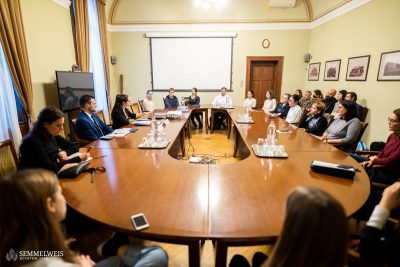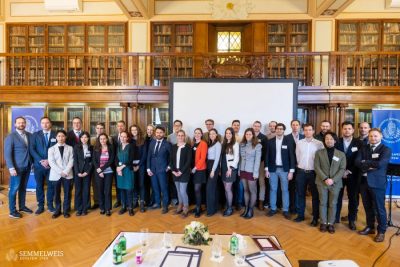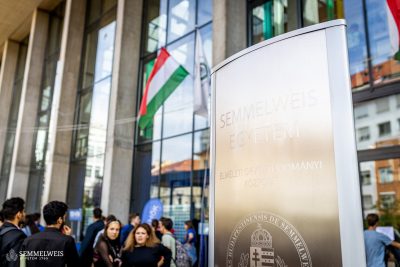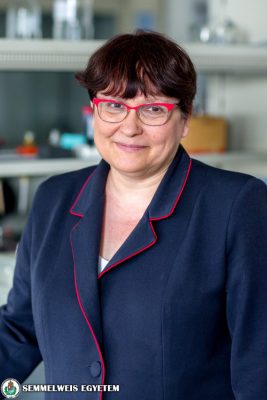 The International Society for Extracellular Vesicles (ISEV) was founded in 2011 to provide global support for extracellular vesicle researchers. This field has been developing at an extremely rapid pace over the last decade, leading to paradigm shifts in almost all areas of biomedical science. Last year, more than 5,000 scientific publications have been published on the subject, with a total of 267 clinical trials reported on one type of vesicle, exosomes (https://www.clinicaltrials.gov/).
The International Society for Extracellular Vesicles (ISEV) was founded in 2011 to provide global support for extracellular vesicle researchers. This field has been developing at an extremely rapid pace over the last decade, leading to paradigm shifts in almost all areas of biomedical science. Last year, more than 5,000 scientific publications have been published on the subject, with a total of 267 clinical trials reported on one type of vesicle, exosomes (https://www.clinicaltrials.gov/).
Dr. Edit Buzás, immunologist, cell biologist, professor, gave a detailed insight into her field of expertise during the 2022 spring semester of Semmelweis University’s Senior Academy. This field is of great scientific interest; many clinical trials are being conducted worldwide, as extracellular vesicles may play an important role in diagnostics and therapy in the future, she recalled.
Dr. Edit Buzás’ presidency of the International Society for Extracellular Vesicles is a significant international recognition of the 17 years of extracellular vesicle research at the Department of Genetics, Cell- and Immunobiology of Semmelweis University.
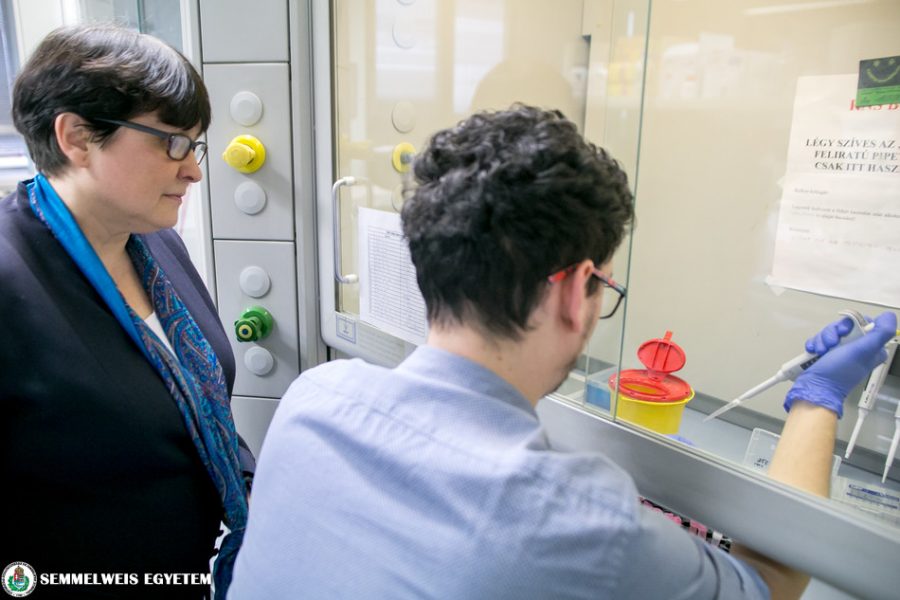 The Hungarian cell biologist takes over the position from Dr. Clotilde Théry (Research Director, INSERM, Institute Curie, Paris). The election took place at the 11th ISEV Congress in Lyon, 25-29 May 2022. The International Society for Extracellular Vesicles has two successful journals, the Journal of Extracellular Vesicles (impact factor: 25.841) and the Journal of Extracellular Biology (Wiley), launched almost a year ago.
The Hungarian cell biologist takes over the position from Dr. Clotilde Théry (Research Director, INSERM, Institute Curie, Paris). The election took place at the 11th ISEV Congress in Lyon, 25-29 May 2022. The International Society for Extracellular Vesicles has two successful journals, the Journal of Extracellular Vesicles (impact factor: 25.841) and the Journal of Extracellular Biology (Wiley), launched almost a year ago.
Dr. Edit Buzás graduated from the Faculty of General Medicine at the University of Szeged in 1983, then worked as an assistant professor at the Institute of Anatomy, Tissue and Developmental Biology at the University of Debrecen. From 1987 to 1989 she was a visiting researcher at McGill University, Canada, and from 1997 to 1998 at Rush University Medical Center, Chicago. Since 1998, she has been adjunct professor at the Department of Genetics, Cell- and Immunobiology at Semmelweis University. Since 2001, she has been a research group leader; 10 years later, she became a professor, and since 2012, she has been the Chairman at the Department of Genetics, Cell- and Immunobiology. In 1996, she was awared a PhD in medicine, in 2007 she was awarded a DSc at the Hungarian Academy of Sciences (MTA), and in 2009 she habilitated. She was elected a corresponding member of the MTA in 2019, and a member of Academia Europaea in 2020.
Her previous research interests include T-cell immunology, autoimmunity and the development of autoimmune arthritis. Since 2005, along with her research team, she has been investigating the isolation, structure, standardization of measurement, and functional aspects of extracellular vesicles, including their application as biomarkers and therapeutic tools. In 2019, she was awarded the Széchenyi Prize in recognition of her outstanding research achievements in the field of the structure and function of extracellular vesicles, and her high quality work in the education of immunology.
Department of Genetics, Cell- and Immunobiology (DGCI), Semmelweis University
Translation: Viktória Kiss
Photo: Attila Kovács – Semmelweis University
